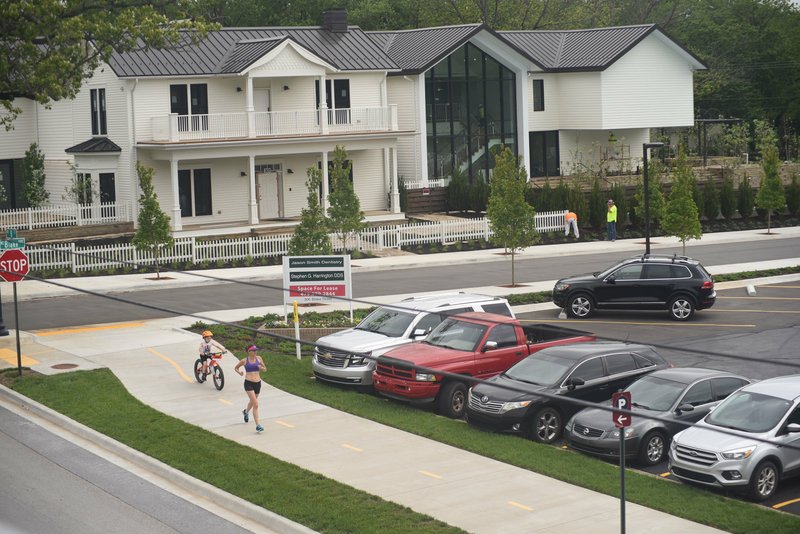BENTONVILLE -- The Northwest Arkansas Open Space Coalition is working toward the goal of finding and preserving open space, even as the task becomes more difficult and expensive in the growing region.
"We are going to grow. We're growing fast. So how do we protect those things? How do we make sure that the reason why we want to live here is still here in two, 20, 40 years from now?" said Elizabeth Bowen, a regional planner and coalition member. "The land development that is going on, I think as a region, all the cities, we want to continue to see that development, but we need to do it in a very wise manner and do it in a conscientious manner."
Bowen and other coalition members had a meeting last week for elected officials and staff members of Washington and Benton counties to hear about the region's Open Space Plan. The discussion included who is involved, how it is being implemented and how open space relates to a strong local economy.
Coalition members said the recognized benefits of preserving open space in communities include creating a high quality of life that attracts taxpaying businesses and residents; stimulating commercial growth and promoting city revitalization; boosting local economies by attracting tourists; protecting agricultural land to safeguard the future of farming economies and communities; and safeguarding drinking water and clean air.
According to regional planners, the natural beauty and open spaces that have been a major draw for the region and have contributed to the quality of life will be threatened by the sheer number of people expected in the next 25 years, an estimated 1 million by 2045. Demand for developable land is expected to keep prices high.
Benton County, Bentonville, Rogers, Pea Ridge and Gravette were well-represented at the meeting, but no one from Washington County or its cities attended.
The coalition has been working with landowners, developers, cities, counties and conservation groups to get as many "wins" as possible in conserving land, Bowen said. Having a dedicated funding source would be a game-changer, but that has not proved to be a popular idea, she said.
Barry Moehring, the county judge of Benton County, said gaining approval for a sales tax would be difficult in the current political climate. The county's attempt to pass a sales-tax measure to pay for a new court building was rejected by voters earlier this year.
"I don't know where the appetite is, publicly, for a sales tax," he said. "My concern is that all this work will have been done and all of the benefits will have been exposed and then the idea of having a dedicated public funding source may be beyond the grasp. I think that's going to be a tough one."
Terri Lane, executive director of the Northwest Arkansas Land Trust and a coalition member, said the group is exploring options but ended up backing off proposing a sales tax last year. The group plans to continue piecing together partnerships and find money wherever it can to buy land. It's a long and slow process for a nonprofit to raise a couple of million dollars, she said.
Lane urged city and county planning departments to be aware of the priorities in the Open Space Plan and to try to get land donations when they work with developers.
The purpose of the Open Space Plan is to develop a coordinated, voluntary program to protect and promote the region's most valued natural landscapes and open spaces. The goal is to preserve those assets to maintain a high quality of life as the region continues to grow, as well as make natural areas in Benton and Washington counties available to residents. One goal is to keep family farms as a part of the region's landscape.
Some examples of open space include the regional trail system; national forests; state and national parks; wildlife management areas; rivers and areas around Beaver Lake; University of Arkansas, Fayetteville agricultural property; city parks; property held in trust; and land owned by private, nonprofit groups.
Maps have been developed showing the location of natural resources; working land; heritage and cultural sites; outdoor recreation areas and corridors; and large, intact areas of forest, wetlands, grasslands and aquatic features that should be considered a high priority for preservation.
The Northwest Arkansas Regional Planning Commission oversees implementation of the Open Space Plan because it has staff with expertise and resources. The plan was paid for with a $350,000 grant from the Walton Family Foundation. Alta Planning+Design developed the plan.
Metro on 10/14/2019
